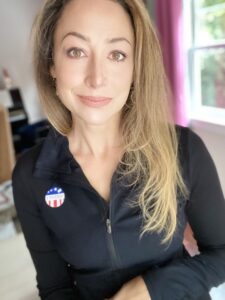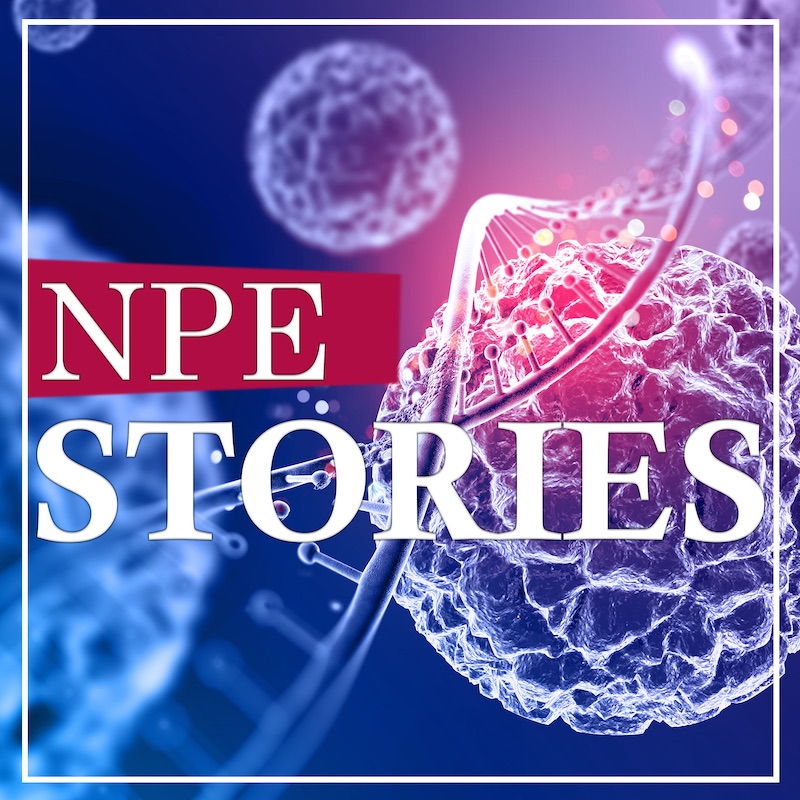In the wake of her own NPE (not parent expected) discovery, Lily Wood created a podcast to share the stories of others who've had shocking DNA results.
Tell us about your own NPE story to the extent you’re comfortable sharing it.
Seeing only 1% French was the red flag in my initial 23andMe DNA report. I was raised to believe I was significantly French and Norwegian. A few months later I took the Ancestry DNA test to compare from the same database that my sister had used. Those results produced the most shocking and traumatic day of my adult life. I had a half brother appear on my DNA results, and I didn’t have a brother as far as I knew. A trip over to my mother’s house an hour later produced more confusion, dismissal, and a host of secrets started to come out. Apparently, my mother and BF worked together in the 80s and had a one-night stand. My mother never told him she got pregnant and never saw him again, or at least that’s what I’ve been told. My mother still claims she didn’t know to this day. I think the most painful part of finding this out is how my mother, birth father, and newfound family have treated me in the aftermath.
How far into your own journey were you when you started your podcast?
Six weeks after I had my DNA shock I published my first trailer for the podcast calling for NPEs to share their story and giving a launch date of July 2019.
What compelled you to start the podcast?
The only comfort I had in those first few weeks of shock was reading other NPE stories on the forums online. I was nodding along with their written stories and scrolling for hours and hours. I would read aloud parts of other NPE stories to my husband at all hours of the day and night. I wanted to be able to listen to these stories as I walked around the house and did my errands. I knew I couldn’t continue to sit in front of a computer the rest of my life but I wanted to bring the comfort of finding others like me everywhere I went. I searched “NPE” on the podcast platforms and at the time did not find anything like it so decided I would produce my own. I realize now I could have used other terms and certainly found other podcasts with these stories on them, but with my limited knowledge at the time I was unable to find other podcasts.
Did you initially find NPEs very willing to speak out, or did you have to coax people to share?
I have only ever asked one guest. My first one I had to search for on reddit; I was too afraid to ask anyone on the DNA sites because I didn’t want to break the rules and get kicked off if they considered it “self-promotion.” After that I’ve had a pretty steady stream of people who reach out. I’m booked for 22 weeks out. I can only handle about one guest a week at this time because I do everything myself including scheduling, recording, and editing. I’m only a hobbyist—I’m literally learning everything as I go.
I believe stories benefit the teller as well as the audience. From your experience sharing people’s stories, can you talk a little about the ways the stories help the listeners, and the ways telling the stories helps the storytellers?
I know every story I record is sacred. Somebody out there is listening and nodding along in relief. A lurker, or perhaps a new NPE bingeing on stories all night long when they can’t sleep from the overwhelming grief they are experiencing. I get emails from listeners saying they have been listening or bingeing all night long to some of these episodes.
As for the storytellers, I wish I could explain the relief, giddiness, and joy I hear in their voices after I sign off. Some of what they tell me afterwards is pure gold, but of course off the record after I’ve stopped recording. They all sound like a weight has been lifted off their shoulders; sometimes they’re exhausted and yawning. I leave every recording session feeling filled with empathy and love for my fellow NPEs.
Why do you think storytelling and sharing is so important for NPEs?
I don’t think most NPEs receive true understanding and empathy from people. We get it. We can empathize with each other’s heartbreak, confusion, anger, and, sometimes, joy. Finding a community has been life-saving for me in this journey.
In one episode you mentioned that you sought therapy after your NPE discovery. Can you talk about how you chose a therapist and whether it was difficult to find someone who understood NPE issues?
I chose a therapist by pure panic. I literally had a panic attack at 3 a.m. a few weeks after my DNA discovery and thought I was going to be hospitalized. The next morning I called my clinic and got in with the first available intake appointment they had. No research went into it, and I happened to be paired with a cognitive behavioral therapy (CBT) practitioner. I gained tools, but I don’t know what the “right” therapy is for anyone. I literally had to take it a moment at a time and fill my entire world with NPE everything, including reading articles on Severance Magazine, and joining online support groups.
You mentioned at the end of the episode in which you tell your own story that you’re not an expert. That’s something I feel strongly about—people, even other NPEs, trying to speak for everyone, wanting to be spokespersons for NPEs. I believe each of us is an expert on our own experience, but none of us can speak for everyone. Can you address that, whether you agree or disagree and why?
I don’t know anything. I joke with other NPEs that I’m waiting for someone to write the handbook on how to guide us through our DNA discovery. I get skeptical when I hear anyone opine on what I should do with my family members or what I should be feeling. Especially the online threads on forgiveness, or forgiveness-shaming as I like to call it. We can each only share our own personal experience, and I agree that none of us can speak for everyone. Sometimes we share experiences, and in that moment of understanding and empathy we can all nod along with each other. Those are the moments I like.
Have you seen many commonalities as you hear more and more stories? What issues resonate most?
Yes, the mothers. I hear the same mother being described in so many NPE stories. Self-centeredness sometimes appears in many of their stories. Actually many of the parents involved, including birth-fathers, have a thread of self-centeredness woven in. I realize this is rooted in shame and self-protection, but all the same it exists in so many NPEs stories.
What has surprised you in the stories you’ve heard?
I still get surprised every week. I actually have to take notes the whole time to keep up with all the family members and timeline. I have been surprised by the violence I find out about. It makes me a little sick with the rape, murder, and child abuse I have heard and read about. My heart breaks whenever I imagine an NPE as a helpless child in some of these circumstances.
Is there anything else you’d want readers to know about NPE Stories?
I merely consider myself an organizer for the podcast NPE Stories. It’s a safe space where NPEs can share audible versions of their stories. I may help them along with a few questions, but I try to leave room for them to fill the space in their own words. It’s not live, is completely editable, and can be anonymous if the guest prefers.
Are you seeking NPEs to tell their stories, and if so, how would you like them to contact you?
I have a rather long waitlist, but if someone doesn’t mind scheduling 6 months in advance, I go in the order of emails received. I record everyone’s story who is willing, and I can be reached at NPEstories@gmail.com for scheduling. I have a Facebook page, NPE Stories, and I’m on Instagram @lilymwood.
Lily Wood, host of NPE Stories, is a 39-year-old stay-at-home mom of three children. When she and her husband, Graham, were in their twenties, they started an app development company that’s since been acquired by Buzzfeed. In addition to raising her family and hosting the podcast, she volunteers with the American Red Cross as a disaster worker.

BEFORE YOU GO…
Look on our home page for more articles about NPEs, adoptees, and genetic genealogy.
- Please leave a comment below and share your thoughts.
- Let us know what you want to see in Severance. Send a message to bkjax@icloud.com.
- Tell us your stories. See guidelines.
- If you’re an NPE, adoptee, or donor conceived person; a sibling of someone in one of these groups; or a helping professional (for example, a therapist or genetic genealogist) you’re welcome to join our private Facebook group.
- Like us on Facebook and follow us on Twitter and Instagram @Severancemag.

